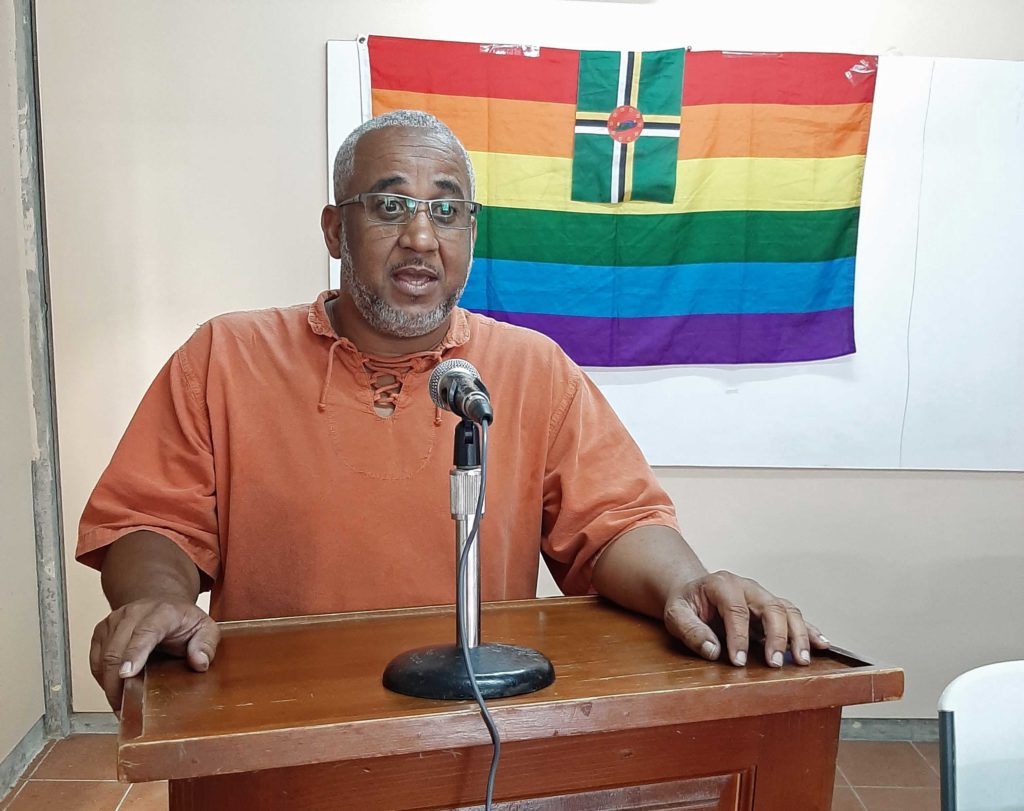Gay man challenges Dominica’s anti-LGBT laws
Maurice Tomlinson of Jamaica and Canada has been involved in…
A newly filed lawsuit seeks to overturn Dominica’s anti-gay law, building on the global push for decriminalisation of LGBT people. If successful, the suit will eliminate one of the last remaining anti-sodomy laws in the Western Hemisphere.

July 18, 2019 — A gay man, who must remain anonymous for his own protection, has today filed a landmark claim challenging Dominica’s homophobic laws that criminalise “buggery” and “gross indecency,” targeting the consensual sexual activity of LGBT people. With critical legal support from the Canadian HIV/AIDS Legal Network (“HIV Legal Network”), the University of Toronto’s International Human Rights Program, and other like-minded groups, this important case will demonstrate that these horrific and outdated laws violate human rights guaranteed in the Constitution of Dominica.
The intention to file this lawsuit was celebrated at World Pride in New York City several weeks ago. Today’s official filing is being announced in Dominica by Daryl Phillip, Founder and Head of Minority Rights Dominica (MiRiDom) and Maurice Tomlinson, Senior Policy Analyst at the HIV Legal Network and a dual citizen of Jamaica and Canada.
“Brutal and often life-threatening experiences are a daily reality for many LGBT people in Dominica, and elsewhere in the Caribbean. Because the law criminalises all LGBT individuals, it sends a powerful message that other people — whether law enforcement or regular citizens on the street — are entitled to discriminate and commit human rights abuses against LGBT individuals,” says Philip. “While Britain decriminalised homosexuality in 1967, a majority of Commonwealth countries have not followed suit. LGBT people still face harsh laws in many parts of the world.”
The case builds on the global movement for decriminalising LGBT sex, as seen recently in Botswana and India. A court decision to decriminalise sodomy in Dominica would be a persuasive precedent for other countries, namely ones that have similar anti-sodomy laws and that use the same court system. (Antigua and Barbuda, Grenada, St. Kitts and Nevis, St. Lucia, and St. Vincent and the Grenadines are all examples.) The case also builds on precedents from sister Caribbean countries Belize and Trinidad and Tobago, and will assist similar cases underway in Barbados and Jamaica, both also supported by the HIV Legal Network. Together, these amount to some of the last anti-sodomy laws in the Western Hemisphere.
The claimant at the centre of this case is a gay man who could face more than a decade in prison for private sexual intercourse with consenting adult same-sex partners. Already, he has experienced homophobic hostility, discrimination, harassment, threats, and physical and sexual assaults fueled by these hateful laws. In one instance, he was viciously attacked in his own home, yet police refused to investigate and allowed his attacker to remain free.

“Canada is an important safe haven for LGBT refugees who are forced to flee their country of origin to escape anti-gay laws and the violence that often accompanies them. But we must recognise that some people do not have the opportunity to flee, nor do they wish to leave their home,” says Tomlinson. “With this case, we hope to provide the LGBT people of Dominica with the important, life-affirming option to stay, if they so choose. We want to bring an end to the hateful laws that plague our countries, one legal challenge at a time.”
The ultimate goal of these legal challenges is to end the criminalisation of consensual sexual activity between people above the age of consent, in particular among same-sex partners. The courts can make binding decisions obliging the state to end any breach of the Constitution, including by changing its laws. As has been shown in the United States, Belize, Trinidad and Tobago, India and Botswana, court challenges are the most effective way of ending these laws when governments are either too slow or too afraid to act.




